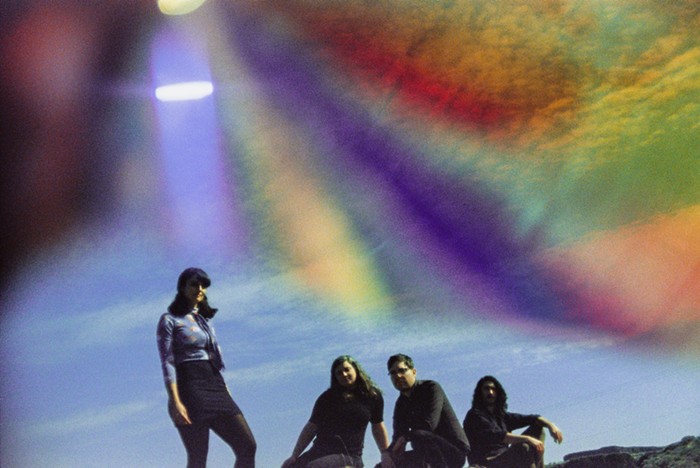by the Pains of Being Pure at Heart
(Slumberland)
The 45-rpm 7-inch has passed through anachronism into classicism: Putting out a 7-inch says something about an act's relationship with history, even if the format is its only acknowledgement of the past. (That, and nobody wants to be left out of that recently reliable profit center Record Store Day.) New York indie-pop quartet the Pains of Being Pure at Heart are as good an example of this tendency as anybody: Their sound is rooted in circa-1986 UK jangle; the sparkling, skittering A-side of this 7-inch is speedier and more comfortable than most of their bright debut album; and the B swoons a little more but mines the same basic idea. It's very summery. And while chances are better you'll hear it digitally than on vinyl, it's the thought that counts.
by Comet Gain
What's Your Rupture?)
Until punk, the 7-inch EP—at least in America—was the Jan Brady of formats, the gawky middle child stuck between cute little two-song Cindys and the LP's swanlike Marcia. That, of course, made it the ultimate format for ne'er-do-wells like the narrator of the title track from this four-song 7-inch: "I'm sure that it happened once/I was laughed at by all those cuts/That I never wanted to know," sings David Feck. The middle two tracks, both titled "Thee Eager Younger Fraternity Bomp," are lively throwaways the band began and had finished, in very different ways, by compatriots Love Is All and Crystal Stilts. One-off collaborations thrive in this medium; so does the B-side cover, in this case an appealingly scrappy version of New Order's "Love Vigilantes."
by Tracey Thorn
(Buzzin' Fly)
"Single" = "concise" went out the window for good when the 12-inch single came to prominence in the mid-1970s, and as time went on, the format became a repository for multiple remixes aimed at nearly as many DJ types. This 12-inch is a good example, with three reworks of Thorn's crisp, adult pop. Michel Cleis's spooky, percussion-heavy version sounds like a drier variation on Superpitcher's classic remix of Dntel's "Dream of Evan and Chan." Andre Lodemann gives it an appealingly glossy deep-house treatment: Thorn singing "house at night" sounds most appropriate here. Morgan Geist's clipped electro-funk, beholden to an early 1980s when the 12-inch was reaching artistic flower, serves it best: She and those serrated synths were made for each other. ![]()



















